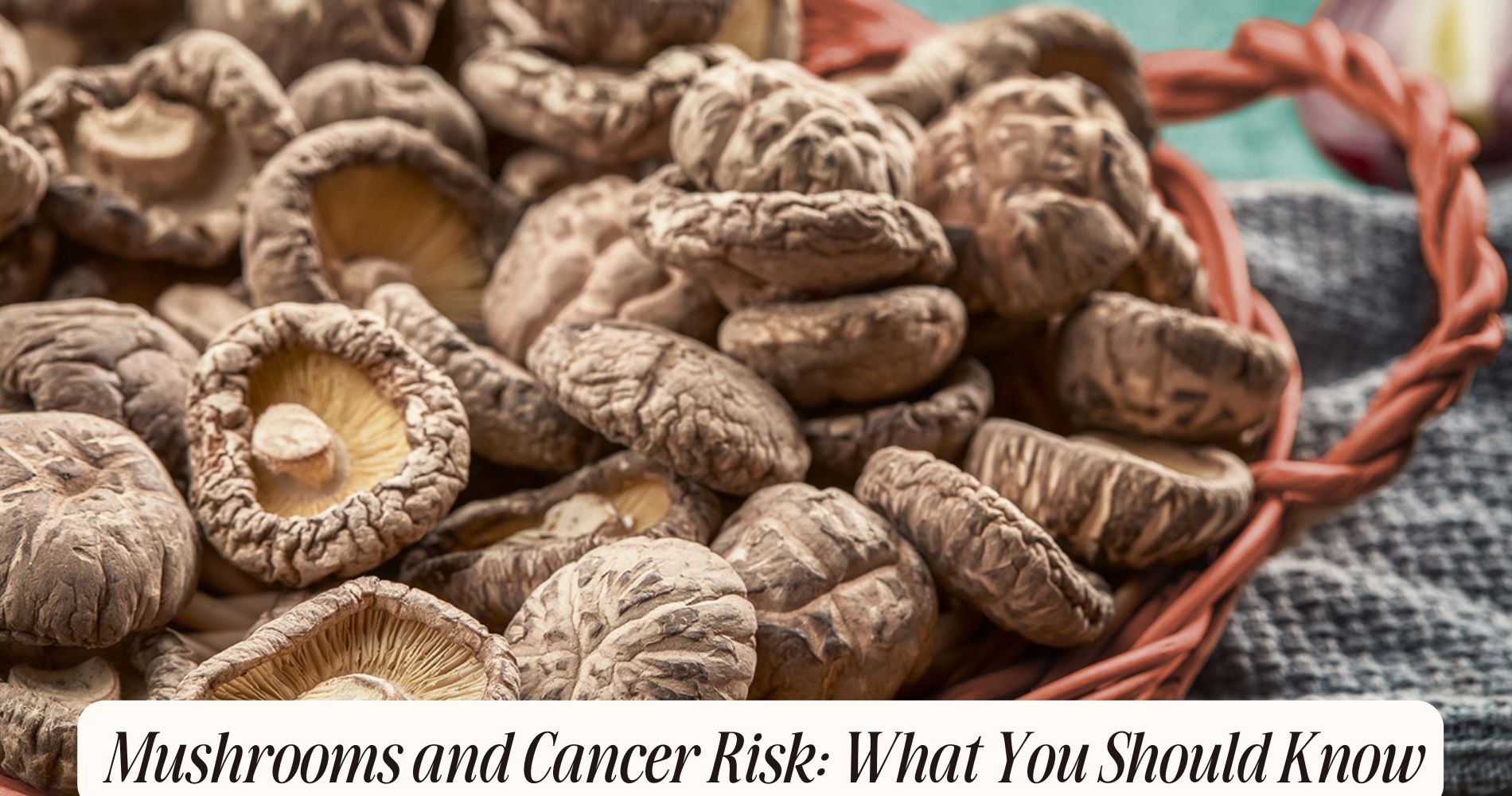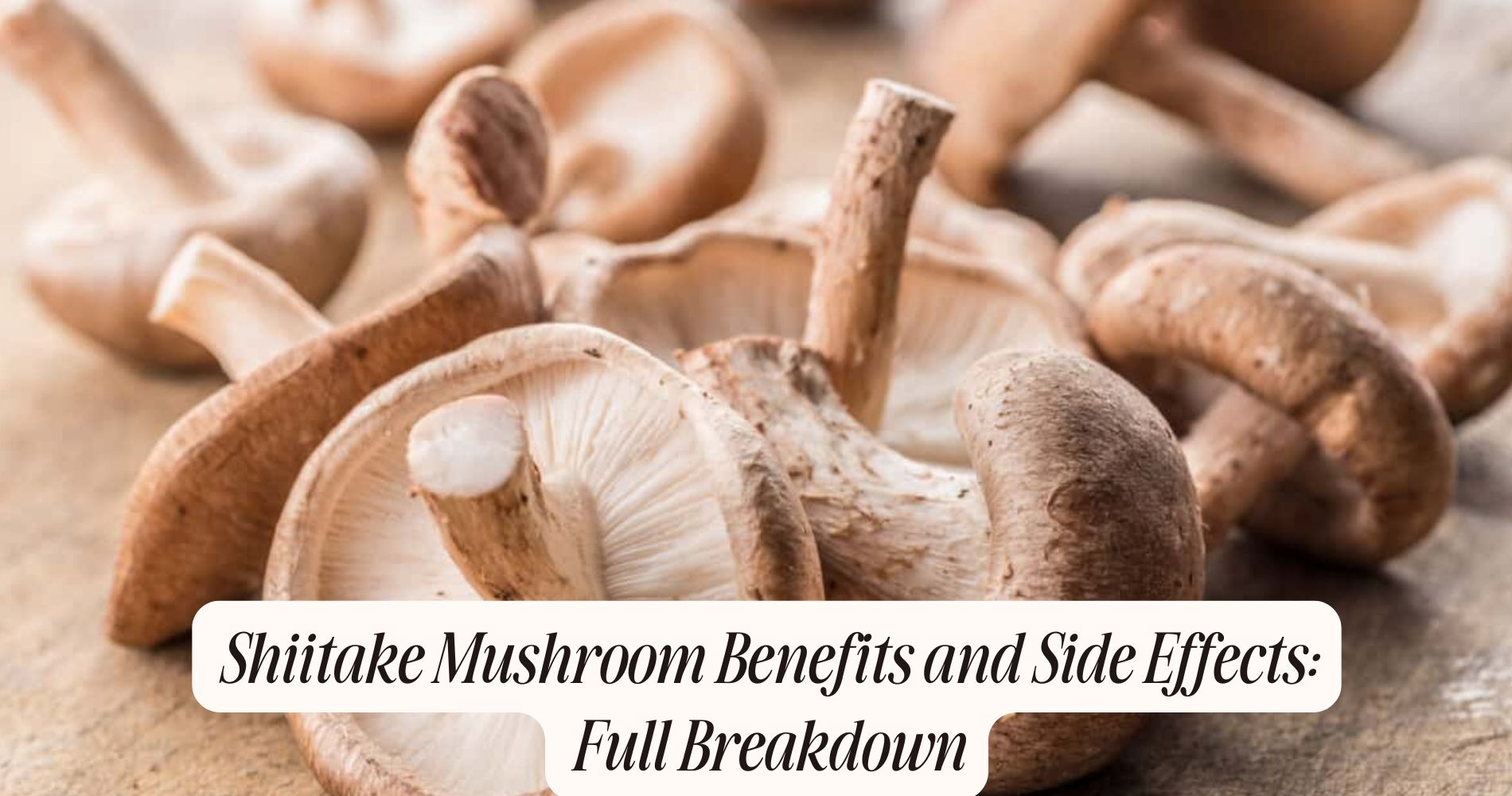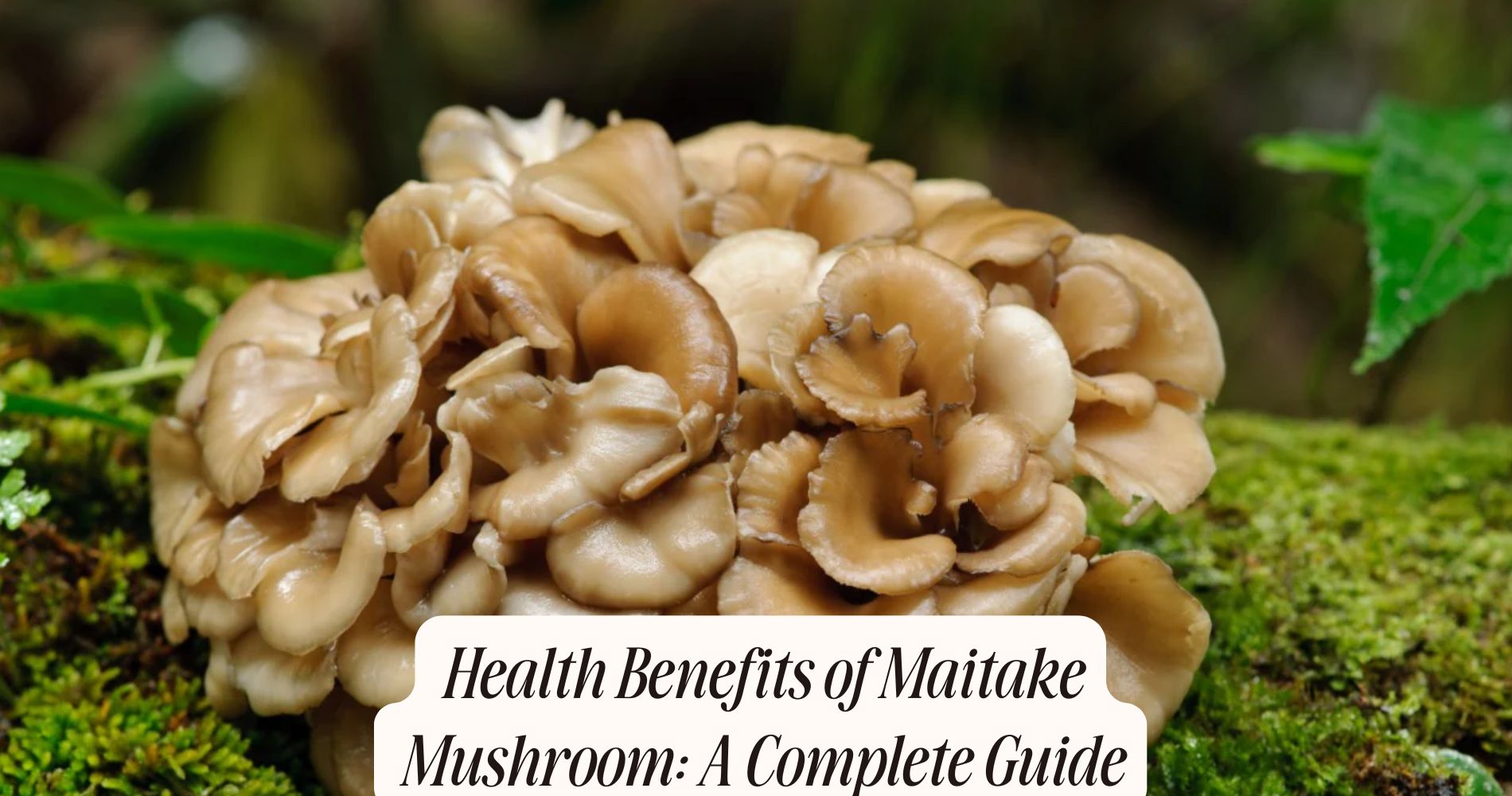
Mushrooms and Cancer Risk: What You Should Know
Nutritional Benefits of Mushrooms
Mushrooms are often overlooked in the diet, but they pack a powerful nutritional punch. These versatile fungi come in various mushroom varieties, each offering unique health benefits. For instance, shiitake mushrooms are rich in B vitamins, while portobello mushrooms are a great source of potassium. Incorporating different mushroom types into your meals can enhance not only flavor but also nutritional value.

When it comes to cooking methods, mushrooms can be sautéed, grilled, roasted, or even used in soups and stews. Sautéing with a bit of olive oil helps retain their nutrients while enhancing their taste. Grilling adds a smoky flavor, making them an excellent addition to salads or as a meat substitute in burgers. Roasting caramelizes their natural sugars, bringing out a delightful sweetness.
Mushrooms also contain antioxidants and are low in calories, making them an excellent choice for those looking to maintain a healthy weight. By adding a variety of mushrooms to your diet and experimenting with different cooking methods, you'll not only enjoy delicious dishes but also boost your overall health.
Key Compounds in Mushrooms
Mushrooms contain several key compounds that can play a significant role in health.
Their antioxidant properties help combat oxidative stress, while certain components support your immune system.
Additionally, some mushrooms are being studied for their potential anti-cancer effects, making them a valuable addition to your diet.
Antioxidant Properties Explained
The remarkable antioxidant properties found in various mushroom species play an essential role in combating oxidative stress, which is linked to cancer development.
Different mushroom varieties, such as shiitake, maitake, and reishi, are rich in key compounds like polysaccharides, phenolics, and vitamins that contribute to their antioxidant mechanisms. These compounds work by neutralizing free radicals, reducing inflammation, and protecting cellular integrity.
For instance, polysaccharides in mushrooms enhance the body's ability to fight oxidative damage, while phenolic compounds scavenge harmful radicals.
The vitamins present, particularly vitamin C and D, further bolster these effects by supporting overall health and cellular function.
Incorporating mushrooms into your diet can provide these valuable antioxidants, potentially lowering your cancer risk.
Regular consumption of these nutrient-dense foods may help you maintain a healthier balance of oxidative stress in your body.
Immune System Support
Incorporating various mushrooms into your diet can greatly enhance your immune system support, thanks to key compounds like beta-glucans and ergothioneine. Beta-glucans, found in the cell walls of mushrooms, are known for their immune-boosting properties. These polysaccharides help activate immune cells, like macrophages and natural killer cells, making your body more effective at warding off infections.
Additionally, ergothioneine is a powerful antioxidant that helps protect your immune system from oxidative stress. This amino acid not only supports immune function but also promotes gut health, which is essential for overall immunity. A healthy gut microbiome plays an important role in your body's defense mechanisms, as a balanced gut flora can enhance immune responses.
Including mushrooms like shiitake, maitake, and reishi in your meals can provide these beneficial compounds. Whether you add them to soups, stir-fries, or smoothies, you're not just enjoying delicious flavors; you're also investing in your health.

Potential Anti-Cancer Compounds
Research highlights that certain compounds in mushrooms may play a significant role in cancer prevention. These mushroom phytochemicals, such as polysaccharides, triterpenoids, and phenolic compounds, have garnered attention for their potential anti-cancer properties.
For instance, polysaccharides like beta-glucans can enhance immune function, which is vital in combating cancer cells. Triterpenoids found in various mushrooms, such as reishi and turkey tail, have shown promise in inhibiting tumor growth and may even induce apoptosis, or programmed cell death, in cancer cells.
Additionally, phenolic compounds possess antioxidant properties, helping to neutralize free radicals that can lead to DNA damage and cancer development.
Scientific studies support these findings, noting that regular consumption of mushrooms can be associated with a lower risk of certain cancers, including breast and prostate.
Antioxidants and Cancer Prevention
How can antioxidants play a role in cancer prevention? Antioxidants are compounds that help neutralize free radicals in your body, which can damage cells and contribute to cancer development. Certain mushroom varieties, like shiitake and maitake, are rich in antioxidants, making them a valuable addition to your diet.
By incorporating these mushrooms into your meals, you can bolster your body's defenses against oxidative stress. When you're preparing mushrooms, consider cooking methods that preserve their antioxidant content. Steaming or sautéing mushrooms lightly can help maintain their beneficial properties, while frying may diminish their antioxidant levels.
Aim to enjoy a variety of mushroom types to maximize the range of antioxidants you consume. Research indicates that a diet rich in antioxidants may lower your cancer risk, so incorporating mushrooms could be a smart choice.
However, it's important to combine them with other antioxidant-rich foods, like fruits and vegetables, for a well-rounded approach. By making these dietary changes, you empower yourself to take proactive steps toward cancer prevention, utilizing the natural benefits that mushrooms and their antioxidants offer.
Research Findings on Mushrooms
Mushrooms have garnered attention in recent studies for their potential role in cancer prevention and treatment. Researchers have explored various mushroom varieties, such as shiitake, maitake, and reishi, to understand their bioactive compounds and effects on cancer cells.

For instance, certain studies highlight the presence of polysaccharides and ergothioneine in these mushrooms, which may enhance immune function and exhibit antioxidant properties.
In cancer studies, findings suggest that incorporating mushrooms into your diet could lower the risk of certain cancers, like breast and prostate cancer. One large observational study indicated that individuals consuming mushrooms regularly had a notably reduced risk of developing these types.
Additionally, some laboratory studies show that extracts from specific mushroom varieties can inhibit tumor growth and induce apoptosis in cancer cells.
While the research is promising, it's crucial to note that mushrooms shouldn't replace conventional treatments. Instead, think of them as a complementary addition to a healthy diet.
As studies continue to unfold, you may want to keep an eye on emerging evidence that underscores the potential benefits of these fungi in cancer prevention and overall health.
Types of Mushrooms to Consider
When considering mushrooms for their potential cancer-fighting properties, it's important to know which types offer the most benefits.
Medicinal varieties, like reishi and shiitake, can boost your immune system, while common edible mushrooms like button and portobello provide essential nutrients.
However, be cautious of toxic species, as they can pose serious health risks.
Medicinal Mushroom Benefits
In recent years, the spotlight on medicinal mushrooms has grown, highlighting their potential benefits in health and wellness. You might be surprised to learn that various fungi, like reishi, lion's mane, and chaga, offer impressive medicinal properties.
These mushrooms have been used for centuries in traditional medicine, but now research is uncovering their therapeutic applications.
Reishi, often called the "mushroom of immortality," is known for its immune-boosting effects and stress-reducing properties.
Lion's mane, on the other hand, has gained attention for its neuroprotective benefits, potentially enhancing cognitive function and nerve regeneration.

Chaga is celebrated for its antioxidant properties, which may help combat oxidative stress and inflammation in the body.
Including these medicinal mushrooms in your diet or supplement routine could provide a natural way to support your immune system and overall health.
However, it's important to consult healthcare professionals before making any significant changes.
Common Edible Varieties
If you're exploring the world of edible fungi, several varieties stand out for their taste and nutritional benefits. Shiitake mushrooms, for instance, aren't just flavorful; they also offer numerous health advantages. Rich in polysaccharides, they may enhance your immune system and potentially lower cancer risk.
Plus, shiitake benefits include compounds that can help lower cholesterol levels and support heart health.
Oyster mushrooms are another fantastic choice. They've a delicate flavor and a meaty texture, making them a versatile addition to various dishes. These mushrooms are low in calories yet packed with nutrients like vitamins B and D, fiber, and antioxidants.
Studies suggest that oyster mushrooms may have properties that could inhibit cancer cell growth, adding to their appeal.
Incorporating these mushrooms into your diet is easy. You can sauté shiitake or oyster mushrooms with garlic and olive oil, toss them in salads, or use them in soups.
Toxic Mushroom Risks
Identifying toxic mushrooms is vital for anyone interested in foraging or consuming wild fungi. Many toxic species can cause serious health issues, including mushroom poisoning, which can be fatal in some cases.
The most notorious toxic mushroom is the Amanita phalloides, or death cap, known for its deadly toxins that can lead to liver failure.
Other dangerous varieties include the Amanita muscaria, which can cause hallucinations and delirium, and the Galerina marginata, a small brown mushroom that also contains potent toxins.
It's important to highlight that some toxic mushrooms closely resemble edible ones, which can lead to accidental ingestion.
To minimize the risk of mushroom poisoning, always educate yourself on local fungi and consult reliable guides or experts. If you're unsure about a mushroom's edibility, don't take the chance.
The consequences of consuming a toxic species can be severe, so err on the side of caution. Always prioritize safety when foraging, and make sure you're well-informed about the mushrooms in your area. Your health is worth the extra effort!
How to Incorporate Mushrooms
Mushrooms can easily fit into your diet in various delicious ways. You can add them to salads, stir-fries, or soups for an earthy flavor and a boost of nutrients.
Try sautéing sliced mushrooms with garlic and olive oil for a quick side dish, or toss them into pasta for added texture.
If you're looking for some creative mushroom recipes, consider making stuffed mushrooms filled with cheese and herbs or a hearty mushroom risotto. These dishes not only taste great but also enhance your meals with their cancer-fighting properties.
If cooking isn't your thing, mushroom supplements are another effective way to incorporate these fungi into your routine. They come in various forms, including capsules, powders, and tinctures, and can provide concentrated benefits.
When choosing supplements, look for high-quality products that specify the type of mushroom used, like reishi or lion's mane, known for their health benefits.

Incorporating both culinary and supplemental mushrooms into your diet can help you take advantage of their potential health benefits. Whether you're cooking or opting for supplements, it's easy to enjoy what mushrooms have to offer.
Potential Risks and Considerations
While many people enjoy the health benefits of mushrooms, it's vital to be aware of potential risks and considerations. Although mushroom consumption can offer nutritional advantages, certain varieties may pose health risks, especially if consumed raw or improperly prepared.
For instance, some mushrooms contain toxins that cooking methods can neutralize, so always make sure you prepare them correctly.
Cancer studies show mixed results on mushrooms' effects on cancer risk, with some suggesting potential protective benefits while others indicate that overconsumption might be linked to specific health concerns.
It's important to follow dietary guidelines and balance your intake with other food groups to maintain nutritional balance.
Personal anecdotes often highlight individual experiences with mushrooms, but remember that lifestyle factors also play an important role in overall health. Factors such as genetics, exercise, and diet should be considered when evaluating the impact of mushrooms on cancer risk.
Staying informed about different mushroom varieties and their properties can enhance your cancer awareness.
As you enjoy mushrooms, keep these considerations in mind to make informed dietary choices that align with your health goals.
Future Research Directions
Emerging research suggests there's significant potential to explore the relationship between mushroom consumption and cancer risk further.
You might find it intriguing to know that specific compounds in mushrooms, such as polysaccharides and triterpenoids, have shown promise in laboratory studies for their anticancer properties. Future research could focus on the effects of different mushroom varieties, which may vary in their bioactive compounds.
Additionally, examining how dietary patterns that include mushrooms impact cancer risk could provide essential insights. For instance, researchers could investigate the long-term effects of incorporating mushrooms into daily meals versus occasional consumption.
Mushroom cultivation practices also warrant attention. Understanding how growing conditions influence the nutritional content of mushrooms may reveal ways to enhance their health benefits.
Furthermore, studies could assess how processed versus fresh mushrooms affect cancer risk.
As you consider the implications of these findings, it's clear that more rigorous clinical trials are necessary to establish definitive links.
Summary of Key Points
Research highlights several key points regarding the relationship between mushrooms and cancer risk.
First, certain mushroom varieties, such as shiitake, maitake, and reishi, contain bioactive compounds like polysaccharides and triterpenes, which may support immune function and exhibit anti-cancer properties. Incorporating these mushrooms into your diet could potentially lower your risk of certain cancers.
It's also important to address common health myths surrounding mushrooms. Some people believe all mushrooms are toxic or carcinogenic, but this is far from the truth. Most edible varieties, when consumed in moderation, offer nutritional benefits without posing health risks.
Moreover, studies suggest that a diet rich in plant-based foods, including mushrooms, can contribute to overall health and longevity.
While mushrooms alone aren't a miracle cure, their regular inclusion in meals can enhance your overall diet quality.
Support Your Health with SUPER MUSHROOM GUMMIES
Considering the link between mushrooms and cancer risk, Well Gummies’ SUPER MUSHROOM GUMMIES offer a convenient way to harness the power of 10 functional mushrooms. These easy-to-use, chewable gummies help fuel your brain, provide calm energy, and boost immune support, all while delivering a delicious wild berry flavor. With no jitters or crash, they offer a balanced approach to enhance your overall well-being. Add these gummies to your daily routine for a natural, tasty way to support your health and vitality!
Frequently Asked Questions
Can Mushrooms Interact With Cancer Medications?
Certain mushroom types might interact with cancer medications, potentially affecting their efficacy. It's essential you consult your healthcare provider before adding mushrooms to your diet, ensuring safety and avoiding unintended medication interactions.
Are There Specific Mushrooms to Avoid for Cancer Patients?
You should consider avoiding certain mushroom types, like raw shiitake, as they may cause digestive issues. Following dietary guidelines from your healthcare provider guarantees you make safe choices that support your health during treatment.
How Should Mushrooms Be Stored for Maximum Benefits?
To maximize benefits, use proper mushroom preservation techniques. Store them in a paper bag in the refrigerator, maintaining ideal storage conditions around 32°F to 36°F. This helps retain their freshness and nutritional value longer.
Can Mushrooms Help With Cancer Recovery After Treatment?
Mushroom varieties like shiitake and reishi can provide immune support, potentially aiding recovery after cancer treatment. They're rich in antioxidants and nutrients, so incorporating them into your diet can be beneficial for overall health.
What Are Common Allergic Reactions to Mushrooms?
If you're allergic to mushrooms, you might experience allergy symptoms like hives, swelling, or difficulty breathing. Proper mushroom identification is vital to avoid these reactions and guarantee you're consuming safe varieties. Always consult a professional for guidance.
Conclusion
Incorporating mushrooms into your diet could offer significant health benefits, particularly in reducing cancer risk. Rich in antioxidants and essential nutrients, they may help bolster your immune system and combat oxidative stress. While more research is needed to fully understand their effects, including a variety of mushrooms in your meals can be a delicious way to enhance your nutrition. Just be mindful of any potential allergies or interactions with medications, and enjoy the health benefits mushrooms can provide.




